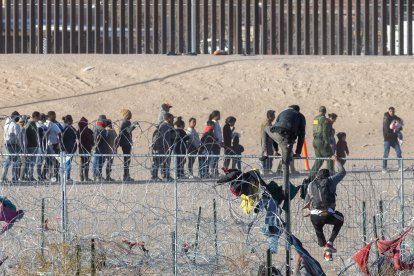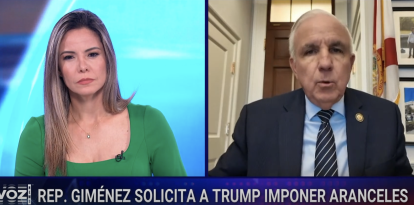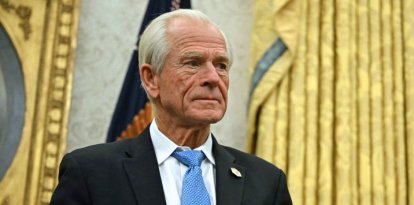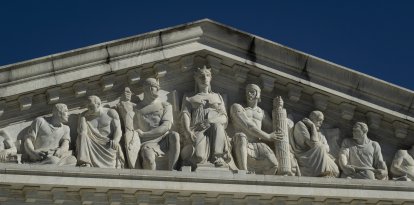Biden ends program he created to give Venezuelan migrants legal status
U.S. officials indicated that an extension of parole status will not be offered to Venezuelan nationals. However, it is still unclear how the cases of Cubans, Haitians and Nicaraguans will be handled.

Immigrants at the southwest border.
Joe Biden's administration decided not to renew the legal status of thousands of Venezuelan migrants who came to the United States through a special program that allowed migrants to enter under the promise of economic support from a sponsor.
The sponsorship program, CHNV (for Cuba, Haiti, Nicaragua and Venezuela), was introduced in 2022 under the argument that it would help reduce illegal border crossings. Although initially focused on Venezuelans, it was extended in January 2023 to include citizens of three other countries.
End of the extension
U.S. officials confirmed that these migrants will not be offered an extension of parole. Instead, Venezuelans will be instructed to apply for another type of immigration benefit or leave the country.
Venezuelans could apply for Temporary Protected Status (TPS), provided they arrived before July 2023, or attempt to seek asylum, a process that is only available to those who can prove they have fled persecution.
According to government figures, as of August 2024, 530,000 migrants had entered the United States under this system, of which more than 115,000 were Venezuelans. The program gave them a two-year temporary permit to live and work in the United States.
Comparisons and reactions
The Biden administration's decision not to extend Venezuelans' status could be seen as a necessary adjustment in immigration policy, differentiating this group from others, such as Afghans and Ukrainians, who did receive extensions under the same "parole" law. It is unclear how DHS will treat the cases of Cubans, Haitians and Nicaraguans.
This step could alleviate some Republican critics who believe that current immigration policies are out of control and in urgent need of rethinking. The CHNV policy was temporarily suspended this summer due to fraud investigations, highlighting the risks of programs with little oversight.
Sponsorship program fraud
According to data from the Fraud Detection and National Security Directorate, the CHNV program has had serious fraud problems, particularly in sponsor applications. Several forms included duplicate information, such as Social Security numbers and addresses that were used hundreds of times. In addition, some sponsors completed multiple forms, and instances were found of numbers associated with deceased individuals.
RECOMMENDATION





















